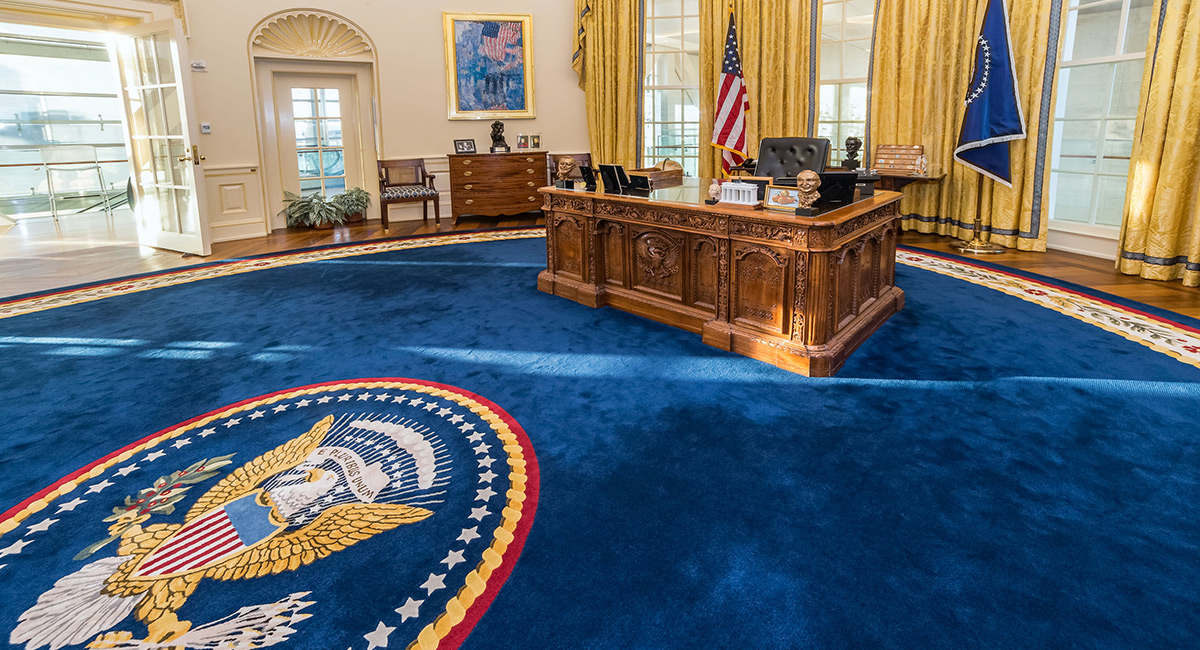President-elect Joe Biden won the 2020 election and the republic is safer now, right? Not so fast.
When facing the prospect of a Republican Senate, Biden announced that he would have a slew of executive orders ready to issue on day one of his administration, so that he could evade dealing with those nettlesome opponents. From a non-partisan perspective of restraining executive power, that is worrisome—but it is not new. While criticizing Barack Obama for his profligate use of executive orders, Donald Trump used these heavily to get around a Democratic House of Representatives himself.
Trump himself did not invent the imperial presidency, but he was blatant about exercising its raw power for his political gain.
Trump’s exploitation of executive power and bending of republican norms could lead to a push to restrain similar behavior in the future, much akin to the reform fever the country went through after Richard Nixon left office in the wake of the Watergate scandal. Amid that effort, Congress enacted laws such as the War Powers Act of 1973 and the National Emergencies Act of 1976 to constrain the president, but these unfortunately turned out to be mere parchment barriers which the executive evaded or twisted beyond recognition to usurp even more of Congress’s constitutional powers.
The powers of the presidency have been growing since the rise of the national press at the turn of the last century. Although the charismatic Teddy Roosevelt gets credit for coining the presidential “bully pulpit,” his predecessor William McKinley employed it effectively in the run-up to and duration of Spanish-American War. Since then, as the national press has found it easier to cover a single executive rather than hundreds of Members of Congress, the gap in influence has grown further. The advent of radio, television, and social media has magnified the effect.
The “imperial presidency” first originated in foreign relations and bled into domestic affairs. Harry Truman combined the use of new presidential institutions—the Executive Office of the President (created by Franklin D. Roosevelt), the National Security Council, the CIA, and unified command of the military services under the Department of Defense—with the unilaterally proclaimed power, as commander in chief of the armed forces, to lead the country into conflict without the constitutionally required declaration of war.
During the last half of the 20th century, the imperial presidency grew even further—and after the 9/11 attacks, George W. Bush claimed that the battlefield was everywhere, including right here at home. He further abused his commander in chief authority to spy on Americans, to suspend the right of habeas corpus for terrorism suspects, try them before special military commissions, and torture them.
Thus, Trump has just said the quiet part out loud, with his overtly political, and unconstitutional actions. He flagrantly obstructed legitimate congressional oversight of his seeming attempt to withhold public aid to Ukraine in order to get their leaders to open an investigation into Joe Biden and his son—a clear example of attempting to use public resources for private political gain. More recently, he tried to undermine the American electoral process by making accusations of massive voter fraud, and by publicly stating that he opposed funding for the U.S. Postal Service in order to thwart mail-in voting—though he later denied saying this.
Trump may have also violated campaign finance law when he commissioned payments to women with whom he had affairs in an attempt to silence them before the 2016 election. He made headlines in October when he implored his Attorney General Bill Barr, via Twitter, to arrest his political foes, including Hillary Clinton and Barack Obama. Finally, Trump declared a questionable “national emergency” to unconstitutionally re-route military construction funds towards the construction of his border wall.
Legal remedies would not have stopped Trump’s breaking of political norms, but some legal changes could have constrained the president—and could do so in the future. However, they must be written in an ironclad fashion to safeguard against executive manipulation, and then actually be enforced.
First and foremost, Congress should no longer put up with presidential stonewalling of legitimate congressional oversight; it should charge any obstructing administration officials with “inherent contempt” and throw them into a reestablished congressional jail until they comply. A new special prosecutor law should be enacted that allows courts to establish such investigators outside the reach of the Justice Department, so that the president or attorney general cannot mess with their investigations of the executive branch. Congress should repeal the National Emergencies Act of 1976; nothing in the Constitution even allows national emergencies to be declared. Also, executive re-routing of any federal funds, which constitutionally must first be appropriated by Congress, should require additional approval by Congress, and not be executed unilaterally by the president. New legislation is needed to prevent presidential conflicts of interests by requiring presidents-elect, before taking office, to divest from all personal investments and put them into Treasury instruments.
Executive orders should not be used to legislate in circumvention of Congress, but should be limited to those used to implement congressionally passed laws. All these limitations must be applied to Democratic and Republican presidents alike—starting with "President-elect" Joe Biden.

















